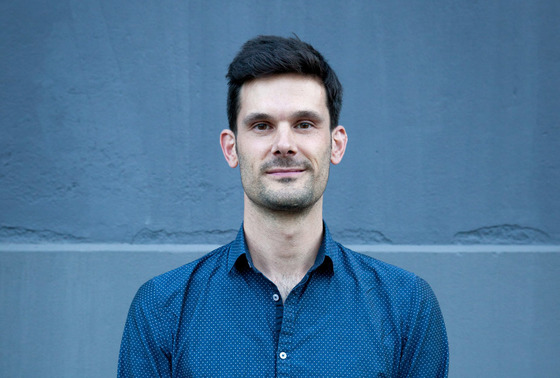04|05
Friday, Interview of the day
Elie Chapuis: Isle of Dogs Looks like Nothing You Usually See in Animation
Wes Anderson’s eagerly awaited new film Isle of Dogs will have its Czech premiere at this year’s Anifilm. Not only can you see the film at the festival, but you can also find out how it was made – today at 1.30 p.m. in the Schwarzenberg Hall. The film’s animator Elie Chapuis and co-producer Ben Adler will take you behind the scenes. Elie also told us how he got to work on Isle of Dogs, how has Wes Anderson’s approach to puppet animation changed since Fantastic Mr. Fox, and which scenes in the new film were the hardest to animate.
What was the impulse or motivation behind your collaboration on Isle of Dogs?
"I had worked on „Fantastic Mr Fox“ and was eager to work for Wes Anderson's new stop-motion film again as soon as I started to hear about the project. For schedule reasons I only could come for the very last months of its shooting, and that's where I met Ben, who by then was very active producing the „behind the scenes“ and making of elements for the release. It was a really nice encounter with a lot of smiling, kindness and mutual interest for each other's work and roles on the film, I think."
This is not Wes Anderson’s first animated film. Do you think that his style or way of working with puppets has changed since Fantastic Mr. Fox?
"Absolutely. I think Wes has a much better and finer knowledge about what he can get from the puppets, the animators, and the whole acting range that is possible in stop-motion. He learnt a lot for sure on Fantastic Mr Fox and during those 9 years between the two films and you could definitely feel that on the set of Isle of Dogs and the preciseness of his direction."
Could you describe what working with the director was like? Did you meet him during the shooting?
"Wes is not at all physically present on the set, but he closely follows every step of every shot via e-mail and thanks to the producers and the animation director on set. Working with him is a mix between a lot of trust and leaving room for the animator to make a few acting proposals, and a very clear plan he has in his head about everything. He can suddenly be very specific about a detail that you would not estimate is central to the scene you're animating, and you need to help him find exactly what he wants through those kind of details."
Which scenes were the most difficult to animate?
"In stop-motion, there are not really such a thing as an „easy“ scene, and that's particularly true on a Wes Anderson film. I think the main dog scenes with a lot of emotion, dialogue where the main story developments are at stake were the most difficult to animate, but most of them were already completed when I arrived on the shooting. As mentioned in the previous point, sometimes an less crucial scene where you would think Wes will not spend too much time progressively takes more and more to shoot and reshoot because he is extremely specific on a certain character move, a certain face expression, the timing of an action, something that nobody really had expected to be central. There's a scene where Atari jumps off a slide in an abandoned amusement park, which was probably re-shot 7 or 8 times because he wanted to see all the jumping / bumping / twisting variations possible. In the final film it probably just lasts 3 seconds..."
Did the animators know the entire story or screenplay of the film?
"Yes, as animators we were very privileged because we were among the rare ones who had unlimited access to the whole film and were screened a few different versions of the cut as it evolved. At such an advanced stage of the shooting, we were not shown the script anymore but rather the animatic, which is the storyboard of the film cut with the definitive dialogues and the main sound effects. I think only the very first animators working on the film were sent the script in advance before the shooting took place, in late 2015 / early 2016. So before I arrived, I had no idea of the film other than animators telling me: „It's a film in Japan with dogs, and you must come work with us, it looks amazing.“
How do you like the final version of Isle of Dogs?
"I only saw it once at the Berlinale during its first ever public premiere, and the atmosphere and expectations around the film were so special and intense that maybe only half of my attention was on the screen because I was equally thrilled by how and when the audience was reacting to the film in that huge and packed theatre. I am looking forward to watching the film a few more times until I can get a better idea, even if it's quite impossible to be objective about a film you've worked on. The only thing I could say for sure is that it is visually stunning and that it looks like nothing you usually see in animation, it's very fresh and sometimes pretty radical, which is a great pride to have been part of."
